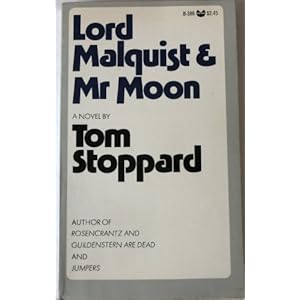The
National Theatre live broadcast of
A Disappearing Number proved to be a stunning experience. A heady mix of drama, math, physics, love, romance, ritual, music, classical Indian dance and rhythms -- it sounds too complicated to work, but it does. In fact, it's kind of magical. Put together by the theatre company
Complicite, this production explained a lot of complicated math, but weaved it together with a love story, a history lesson, an explanation of the beauty of numbers and their patterns, an insightful examination of the situation for an Indian in Britain before the first world war and the ways we build our own private languages of love.
It sounds like an awkward jigsaw puzzle of clashing pieces: yet it was over two hours of non-stop dazzle of ideas, characters, ritual and movement. This is the kind of piece that shows all theatre can be, how it can be so much more than a story unfolding on stage before an audience. It was exciting, it was enthralling and it was inspiring. Thank you,
Spectrum 8 for carrying the broadcasts; thank you, National Theatre for broadcasting these productions; thank you Complicite for visionary theatre; thank you to a talented
cast and crew for a spellbinding experience.
Sunday was the last performance of Stoppard's
The Real Inspector Hound at
Shakespeare & Co. As one of Stoppard's early plays, it's more about playful and clever fun than about weighty issues, though there's an underlying almost hysterical theme of anxiety about the elasticity of reality as the observers get dragged into the play they're observing. This element, however, became completely buried with the focus on physical humor.
Directed by actor Jonathan Croy, the cast made the most of the opportunities for slapstick wackiness, even making the dementedly brilliant choice to have the charwoman, Mrs. Drudge, be blind. The actors had a ball. Moon and Birdboot, the two critics reviewing the play and talking through it, were sitting next to us in the first row stage left. It really invited audience interaction, which happened, including a young man telling the two troublemakers at the end of the interval that he hoped they would be less disruptive in the second half.
Second half: that was the problem. This is a one act play. All the slapstick inserts helped stretch it to two hours with an interval. You could really feel the stretching in the first half. Stoppard's dialogue suits a snappy pacing that ties the moments together. All the inserted bits subsumed the dialogue. The physical humor clearly pleased the audience and the actors seemed to be having a ball. It was fun, and I was probably the only one chafing at the slackness of the pace. The set pieces like the card games and the tea service were funny, but also brought the story to a standstill, so it had to start up again and pick up speed once more. They may have decided that a one-act would not leave an audience feeling as if it got its money's worth; when the
Home Made Theatre Company put it on, they added
The Fifteen Minute Hamlet, which made a nice addition to the production. Great fun.
By the by, I got my contributor's copy of this so I conclude it's available now. The volume includes my essays "The Gilda Stories" and "The Vampire Lifestyle":


 If you need to survive the holiday by distracting yourself from thoughts of murder, what better way to do so than by fixing your glassy stare on the nearest video screen? Here are six "courses" of films to help get you through Thanksgiving.
If you need to survive the holiday by distracting yourself from thoughts of murder, what better way to do so than by fixing your glassy stare on the nearest video screen? Here are six "courses" of films to help get you through Thanksgiving. 

 How an 18th century social theorist foresaw the wretched state in which we find ourselves today.
How an 18th century social theorist foresaw the wretched state in which we find ourselves today.






 Stephen Fry's recent faux pas highlights a cultural blind spot about women's sexuality and shame.
Stephen Fry's recent faux pas highlights a cultural blind spot about women's sexuality and shame.







